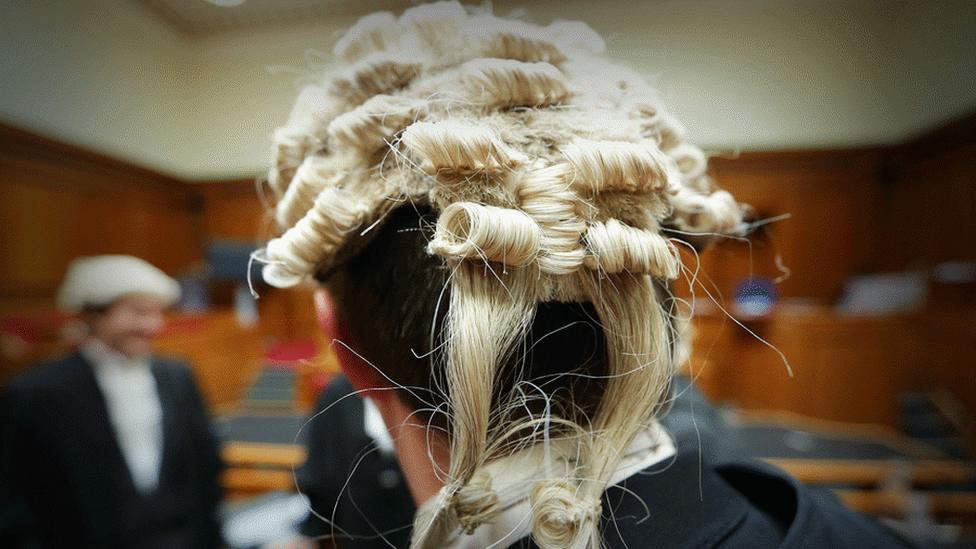Coronavirus: 'Three years after rape and still no court case'
- Published
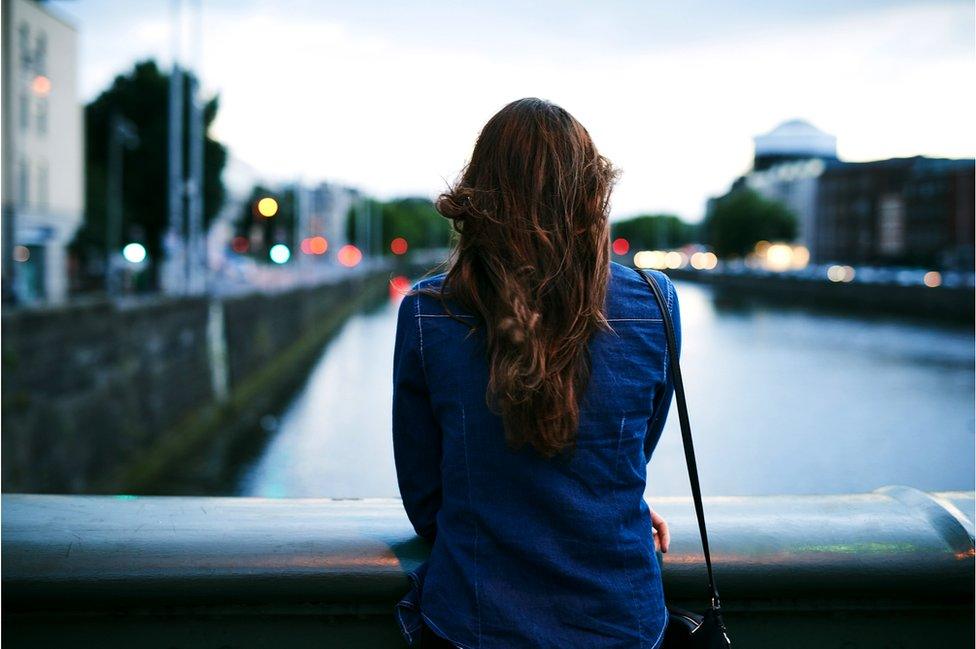
Claire told police she was raped in the spring of 2017.
Three years after the incident, the long-awaited trial was scheduled to go ahead in the early days of the lockdown.
However, it has now been postponed and replaced with a preliminary hearing scheduled for later in the year.
Claire - not her real name - feels she may never get closure, believing that the case may not be heard until 2021, or worse the case could even collapse.
Claire said: "It's been horrible. Our lives have stopped."
On top of her own nerves about the court case, she says the process has been devastating for her children. Her son and daughter may have to give evidence in court.
'Legal process is worse'
"My daughter is a mess. She is on anti-anxiety medication," Claire said. "The stress it has caused my son, because we didn't know until the last minute that he didn't need to go into court."
Claire says she has been thinking of the trial daily since the incident in 2017 and the legal process has been as tough.
She said: The process is worse than the whole thing that happened."
As well as her worries about giving evidence, Claire is also concerned that the coronavirus pandemic will impact the trial itself.
"Testifying in front of a jury and then if one of them gets sick, am I going to have to go back and do it again? Is my daughter going to go do it again?"
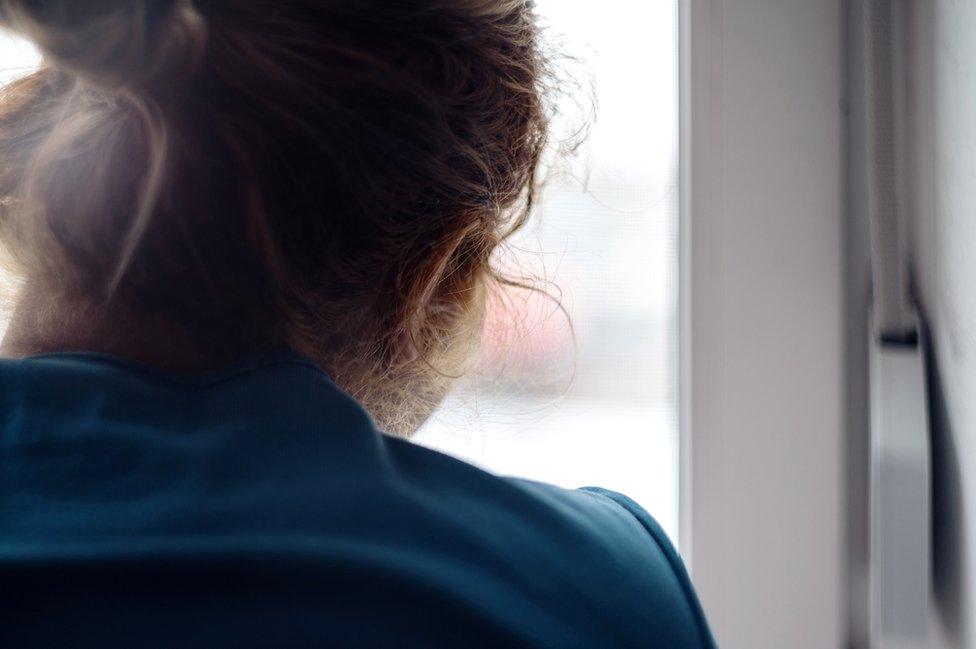
Claire says that the worst part of the process is worrying about being in a room with a lot of people if the trail does go ahead. She thinks the court system should be changed as a result of the pandemic.
The next court date that Claire was waiting for was supposed to be the beginning of the trial, but Claire says that has now been downgraded to a preliminary hearing, when a new trial date will be set. She doesn't know why a new court date cannot be set without another hearing.

How has lockdown affected the courts?
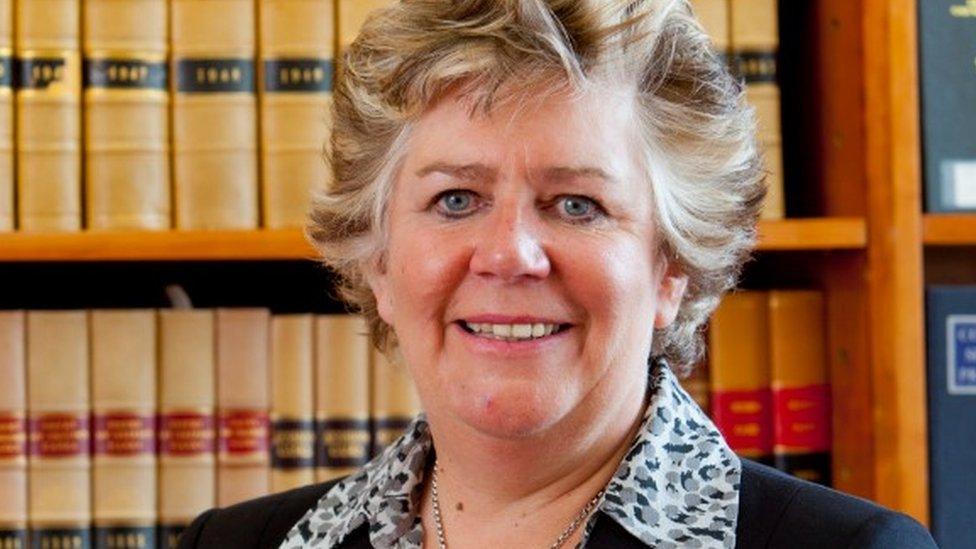
Lord Justice Clerk Lady Dorrian is heading the short-term working party
Jury trials were suspended at the start of the lockdown and cases have been mounting ever since. The backlog at the High Court and sheriff courts could rise to 3,000 cases by next March by some estimates.
On Tuesday, Holyrood's justice committee was told some trials will hopefully resume in the early summer, but social distancing requirements mean there could be a significant reduction in the number of cases taking place.
Three courtrooms could be needed for each trial to maintain social distancing.
Other proposals being considered were pre-recorded evidence and smaller juries to allow more cases to be heard.

Claire said: "I just don't think it should be allowed. Nobody tells you anything. I mean, I don't even know if the date is going to be set for this year.
"And it's my daughter...it's changed her. She has to medicate, daily, because of it."
Claire says her son doesn't even want to talk about it and that she hasn't been able to speak to him about what happened because she doesn't know what she can and cannot say before the trial.
She said: "I just feel for the people who have no support who are on their own in lockdown right now and dealing with this with the lack of support and information from the courts.
"Lockdown is hard enough, never mind with putting this in the mix".
'Let down'
A spokeswoman for Rape Crisis Scotland told the BBC: "So many survivors of sexual offences feel let down by the justice system in ordinary circumstances.
"We are not in ordinary circumstances and the situation we are now in is one that sees the length of these delays being multiplied beyond recognition.
"Unprecedented circumstances require bold action and without it, the toll that this will take on victim-survivors is severe.
"No one should be expected to put their life on hold for years to stand a chance at justice, and the unacceptable risk of pursuing jury trials when we are still in the depths of a global pandemic means that trials will inevitably collapse and there is a serious danger that witnesses may have to testify multiple times. "
The Scottish Courts said that jury trials were postponed in accordance with Scottish government guidelines.
A spokesman said: "All trials, which have been unable to proceed due to Covid-19, were (and continue to be) adjourned to continued preliminary hearings, assigned for June onwards, in the hope that we will be in a position to hold trials in the near future.
"The Lord Justice General, Lord Carloway, has established a short-term working group, led by the Lord Justice Clerk Lady Dorrian and with membership that include Rape Crisis Scotland, to consider the practicalities of recommencing trials by jury as and when public health guidelines permit such a move."

RISK AT WORK: How exposed is your job?
THE R NUMBER: What it means and why it matters
LOOK-UP TOOL: How many cases in your area?
WHAT DOES IT DO TO THE BODY? Doctors on the front line explain

- Published19 May 2020
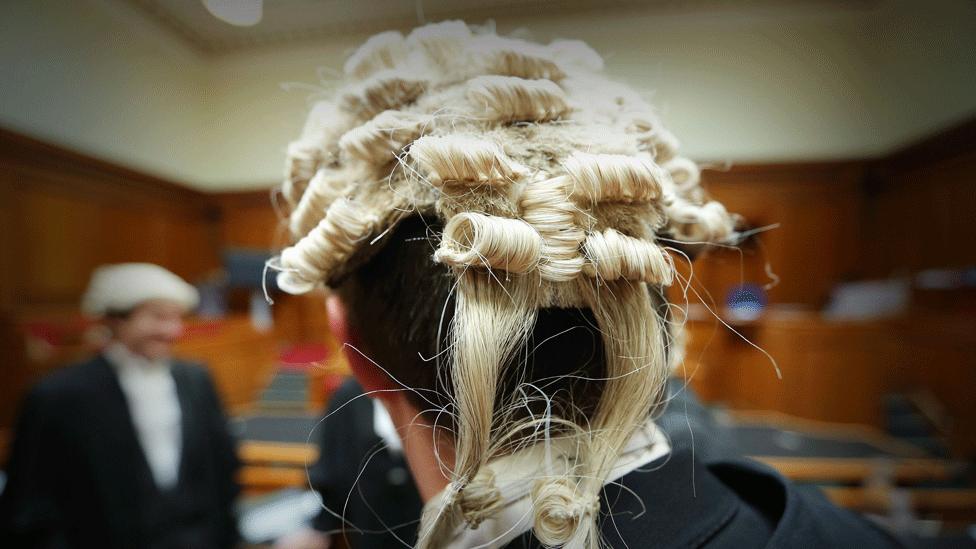
- Published12 May 2020
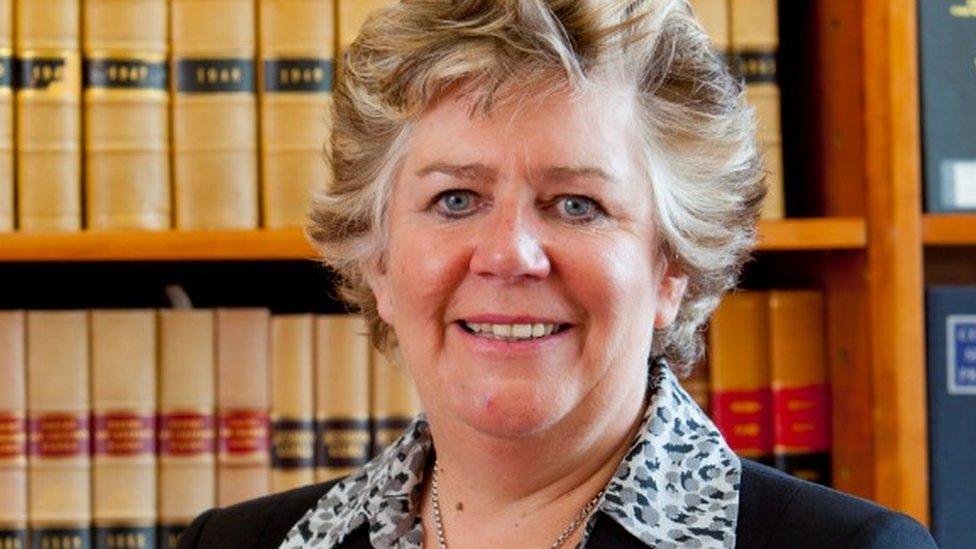
- Published15 April 2020
